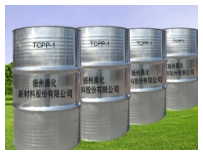At present, flame retardants are mainly divided into organic, inorganic, halogen-free and halogen-free. Among the organic flame retardants, brominated flame retardants have some advantages in many aspects, but they have been hotly discussed by environmental protection experts. In halogen-free flame retardant system, red phosphorus can be regarded as an excellent role, with the advantages of less addition, good flame retardant effect, wide application range and good environmental protection effect.

How to cross integrate common flame retardants with high cost performance and environmentally friendly flame retardants with slightly higher price is an important topic for many industries to study, and it is also the development direction of flame retardant products in the future. While protecting people and property from fire threat, we should also reduce the potential harm of flame retardant to our human body and environment. In fact, any kind of chemical substance has both advantages and disadvantages for us. How to seek advantages and avoid disadvantages is what we should do well. The key lies in scientific management and correct use.
Halogen free flame retardant can meet the requirements of all walks of life, such as common insulation materials in daily life. External insulation is not only suitable for civil construction and industrial heating construction in cold areas, but also suitable for refrigeration and air conditioning construction in warm areas. It can be used not only in new projects, but also in energy-saving reconstruction projects of old buildings. External insulation materials require high scientific and technological content, complete data matching and advanced and reasonable construction technology. Promoting the construction of external insulation technology will stimulate the development of energy-saving materials of high-tech industries in China.
The external thermal insulation plan of external wall is selected because the outer side of the building envelope buffer the stress caused by structural deformation due to temperature change, prevents structural damage caused by rain, snow, freezing, thawing, drying and wetting cycles, and reduces the air content The carbon dioxide and water carbonation of concrete and corrosion of steel structure reduce the corrosion of harmful air and ultraviolet radiation in the air on the maintenance structure. It has been proved that the external thermal insulation can effectively eliminate the inclined cracks or splayed cracks in the top horizontal wall if only the wall and roof insulation materials are properly selected and the thickness is reasonable. Therefore, the external insulation can not only reduce the temperature stress of the maintenance structure, but also maintain the main structure, and then effectively improve the durability of the main structure, so it is more scientific and reasonable than the internal insulation.